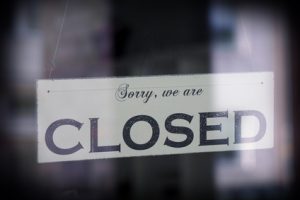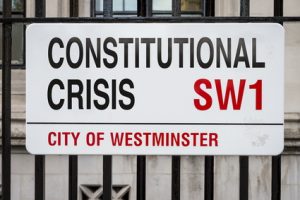While it is imperative to stress that investigations are still ongoing, Thomas Cook is under pressure after the death of two British holidaymakers in Egypt last week. Staying at the all-inclusive Steigenberger Aqua Magic hotel in Hurghada the sudden death of John and Susan Cooper has made headline news in the UK. This tragic turn of events has prompted many people to question the various safety mechanisms in place when travel agents work with overseas hotel companies.
Background To Steigenberger Aqua Magic Hotel Deaths
The death of the two British holidaymakers would appear to have opened up a can of worms regarding the hotel in question. Media reports suggest that as many as 16 people are currently receiving legal advice for illnesses they claim originated from the hotel. Amid suggestions that more reports of illness have come to light since the tragic deaths, Thomas Cook decided to move all British holidaymakers to alternative accommodation.
Initial reports suggested the death of the British couple was brought on by respiratory difficulties and may have had something to do with the hotel’s air conditioning system. The Egyptian police have already ruled out toxic fumes including carbon monoxide poisoning. However, the plot thickens with close family confirming the couple did not report any stomach complaints prior to their death and had very similar symptoms.
Additional Sickness Complaints
Unfortunately, instances of severe stomach complaints are not uncommon in the world of package tour holidays and cruises. What has upset many people here is the suggestion that numerous complaints about the hotel in question were seemingly dismissed and ignored. Even after complaints in the early part of 2018, the Steigenberger Aqua Magic hotel was apparently given a clean bill of health by Thomas Cook in July. Thomas Cook has confirmed the hotel received an overall audit score of 96%.
Issues Being Openly Discussed
While Thomas Cook and hotel franchise company Steigenberger, together with the Egyptian authorities, continue their investigations, many questions are now being asked.
Quality Of Food
There are suggestions that the food standards of the hotel were very poor. Undercooked meat such as chicken is an incubator for various bacteria which can lead to severe food poisoning. The impact of potentially harmful bacteria can be magnified if utensils are not washed properly. The fact that so many British holidaymakers have already complained about upset stomachs, allegedly as a consequence of the food, has placed particular focus on this issue.
Air Conditioning System
Amid claims that there may have been problems with the hotel air conditioning system, Thomas Cook is waiting for the result of tests which should be available within 10 days. The fact that the Egyptian authorities have already ruled out any form of noxious gas is adding further confusion to the issue. We know that Legionnaires’ disease is one of the more common air conditioning system problems. Caused by bacteria this can prompt symptoms similar to pneumonia leading to respiratory difficulties and potential death – something highlighted as a problem with the two British holidaymakers who died.
Cleanliness
While we wait for the official report into the spate of illness, and two tragic deaths, there are also unconfirmed reports of cleanliness problems. Uncontrolled bouts of diarrhoea, contaminating the hotel swimming pool, may have placed other holidaymakers at risk. Legally, any instances of contamination in the swimming pool should be addressed immediately with warning signs erected and the pool cleared if required. In reality it can be difficult to undertake decontamination with large crowds of holidaymakers but the underlying obligation is the well-being and safety of customers.
Holiday Sickness And Death Compensation
Ultimately, when booking a holiday through a UK holiday company it is their legal duty to ensure that the accommodation and services provided are clean and safe. All holiday companies have a legal obligation to “ensure the safety and well-being” of their customers. Historically, we have various instances of negligence proven against holiday companies for a variety of different reasons including:
- Reacting To Complaints
As soon as a holiday company receives a complaint from a customer it is legally obliged to investigate and respond in a formal manner. Even though isolated instances of illness may not be associated with the accommodation/services provided, it is not acceptable to simply dismiss complaints without investigation. Where, as we have seen with the Egyptian hotel, multiple complaints have been made, this should sound warning bells.
Evacuating a hotel due to the potential risk to holidaymakers is obviously a last resort but in this particular instance is one that Thomas Cook chose. This perfectly highlights the potential seriousness of the issues raised.
- Safe accommodation
When we think of safe accommodation we tend to focus on the dangers of break-ins, robberies and assaults. In reality, the likes of Thomas Cook would only work with hotels which have an extremely high degree of security and safety. Where there are instances of multiple break-ins, this may prompt a change in accommodation and end any relationship between individual holiday companies and hotels.
It is also worth noting that clean and tidy environments are also part of the safe accommodation check. In the past we have seen reports of damp, mould and various types of bacteria growing in hotel rooms. It will depend upon the type of bacteria but it can lead to respiratory problems and/or an upset stomach.
- Food and drink
Local regulations with regards to food and drink, and general hygiene in the kitchen, will supersede UK regulations. That does not mean to say that UK holiday companies should not carry out checks and compare and contrast levels of hygiene with UK regulations. Undercooked food and dirty utensils are a breeding ground for food poisoning which can in some cases prove fatal.
There is a legal obligation on all holiday companies to carry out regular checks on their overseas accommodation/service partners. The fact that the Egyptian hotel at the centre of these latest concerns was passed by Thomas Cook in July, with a 96% audit rating, possibly highlights a weakness in the system. Perhaps a better barometer of potential issues with regards to food and hygiene would be the level of complaints from previous visitors?



